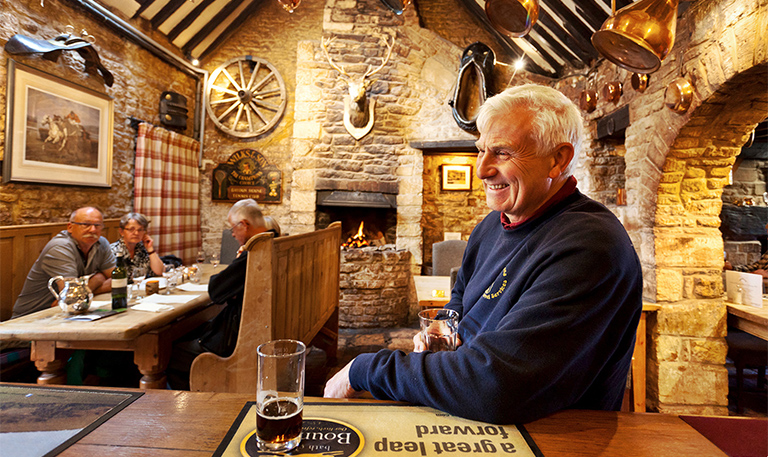Once, while riding the train into Dresden, Germany, I got off where most other passengers did—at Dresden Neustadt. After 20 minutes of walking in a confused fog, my denial that I had gotten off at the wrong station slowly faded. Embarrassed by my mistake, I hopped on the next train. Five minutes later, I got off at Dresden Mitte. As I stepped outside the station, it slowly sunk in: I had made the same mistake again. Another train came. I got on and finally made it to Dresden Hauptbahnhof—a block from my hotel.
Even after countless trips to Europe, I still make my share of blunders. I get lost, miss train connections, and get shortchanged by taxi drivers. But with each slip-up, I learn something. Now I make it a point to tell people: “Many towns have more than one train station. Be sure you get off at the right one.”
Here are some of the biggest mistakes I see travelers make these days:
1. Saving money at the expense of time. People focus on saving money while forgetting that their time is an equally valuable and limited resource. It’s worth paying for museum admission rather than going on a free day and suffering through slow lines and crowds. If a taxi costs you and your partner $5 more than two bus tickets, it’s worth the 20 minutes saved. If ever time was money, it’s when you’re trying to get the most out of traveling abroad.
2. Traveling with outdated information. I may be biased, but an up-to-date guidebook is a $20 tool for a $4,000 experience—and justifies its expense on the first ride to your hotel from the airport. A guidebook can head off both costly mistakes (getting fined for not validating your train ticket) and simple faux pas (ordering cappuccino with your pasta in Italy). A good guidebook can also save time, keeping you from visiting a museum that’s closed for renovation, waiting for a bus that no longer runs, and…
3. Waiting in line, needlessly. I’ve said it before, and I’ll say it again: There are two IQs for travelers: those who queue and those who don’t. Crowds are unavoidable at big attractions—like the Eiffel Tower or Anne Frank’s house—but what is avoidable is standing in line for hours to buy tickets. These days, most popular sights sell advance tickets that guarantee admission at a certain time (often with a small booking fee that’s well worth it). While hundreds of tourists are sweating in long lines, those who’ve booked ahead can show up at their reserved time and breeze right in.
4. Not being alert to scammers and thieves. You’re not going to get knifed or mugged in Europe. But if you’re not on the ball, you could get conned, whether it’s a cabbie padding your fare, a waiter offering a special with a “special” increased price, or a beggar with beautiful eyes, beautiful children, and sad stories asking for a euro—and stealing your wallet. Be cautious, and be alert. And watch for thieves, who work the lines at crowded sights and on the bus lines handiest for tourists. Store your passport, credit cards, and cash securely, in a money belt.
5. Never leaving the tourist zone. Many people jockey themselves into the most crowded spot of the most crowded city in the most crowded month (Old Town Square, Prague, July)—and then complain about the crowds. Likewise, they eat dinner on the most touristy street at the most high-profile restaurant with the most aggressive sales pitch, then are upset by the big bill and disappointing food. You’ll enrich your trip by wandering the back streets, away from the main tourist area. Old Town Square may be a mob scene, but six blocks away you’ll find fewer crowds and eateries full of happy Czechs.
6. Never leaving your comfort zone. A fundamental goal in my travels is to have meaningful contact with local people. At a pub anywhere in England, don’t sit at a table. Sit at the bar, where people hang out to talk. At lunchtime in Coimbra, Portugal, leave the quaint Old Town and head to the local university’s cafeteria to eat and practice Portuguese with students and professors. Connecting with people is what enlivens your travel experience. And for many of us, that means getting out of our comfort zones.
7. Letting mistakes ruin your trip. Many tourists get indignant when they make a mistake or get ripped off. When something happens, it’s best to get over it. The joy of travel is not the sights and not necessarily doing it right—it’s having fun with the process, being wonderstruck with a wider world, laughing through the mistakes and learning from them, and making friends along the way.
Rick Steves (www.ricksteves.com) writes European travel guidebooks and hosts travel shows on public television and public radio. Email him at rick@ricksteves.com and follow his blog on Facebook.


